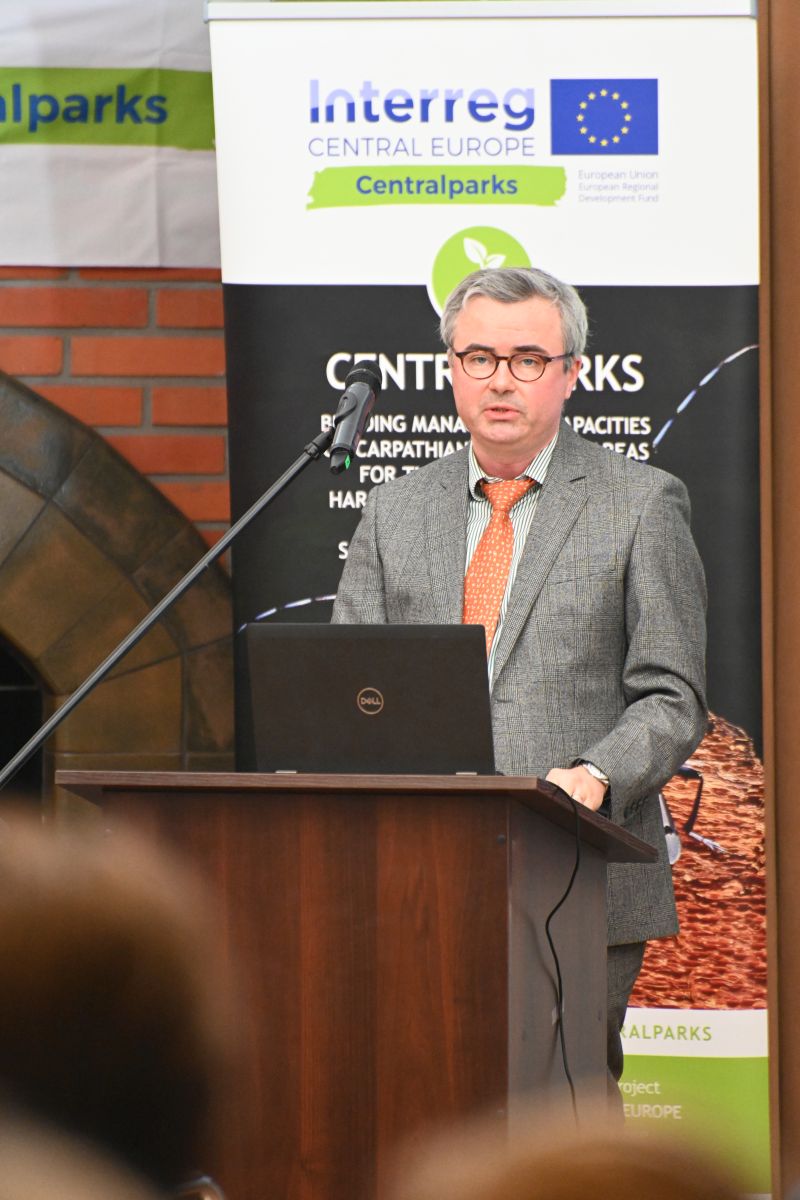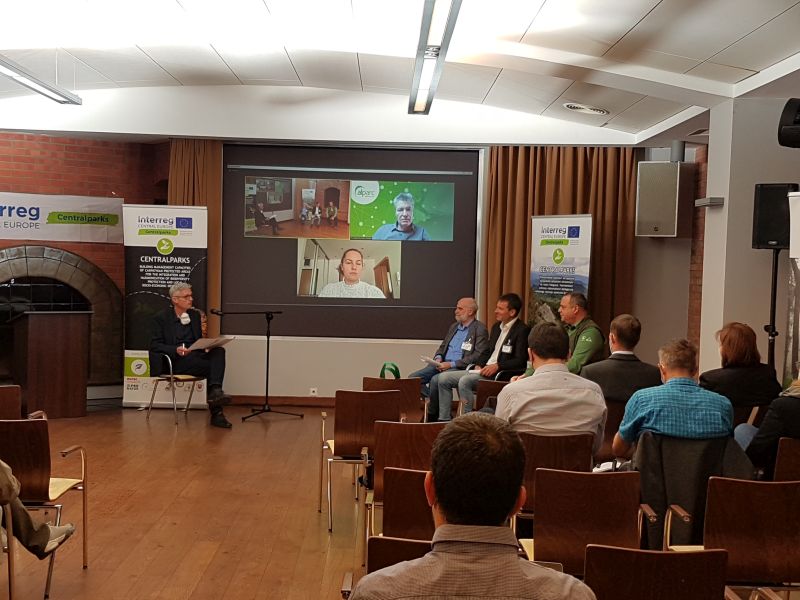SaveGREEN - At the Centralparks Final Conference: exchange of knowledge and experience
30-03-2022
Wieliczka, Poland, 23-24 March 2022
After three intense and inspiring years, the Interreg Central Europe project “Centralparks - Building management capacities of Carpathian protected areas for the integration and harmonization of biodiversity protection and local socio-economic development” is approaching its successful conclusion. The Centralparks project consortium invited to its final conference titled ‘Transnational cooperation for the sustainable future of the Carpathian region’, which was held in Wieliczka, Poland, from 23 – 24 March 2022. Altogether 155 persons attended the conference either in-person or online. The SaveGREEN team, represented by Hildegard Meyer, Lead Partner WWF-CEE, presented SaveGREEN and was excited to learn more about the project’s main findings and outputs, from which valuable insights can be drawn to inform our own work over the next year.
Welcomed by the Centralparks Lead Partner representative Isidoro de Bortoli from EURAC Bolzano, Italy and the host Ekopsychology Society, Monika Ochwat-Marcinkiewicz, Roman Cherepanyn (WWF Ukraine), Lukas Rejt (Ministry for Climate and Environment in Poland) and Lubor Jusko (Joint Secretariat of Interreg Central Europe Programme) provided some introductory remarks including the dire situation in Ukraine. Thereafter, Harald Egerer (UNEP Vienna, Secretariat of the Carpathian Convention), Przemysław Oginski (European Commission, DG Environment), Boris Erg (IUCN Regional Office for Eastern Europe and Central Asia), Andreas Beckmann (CEO of WWF Central and Eastern Europe) and Guido Plassmann (ALPARC) elaborated on the EU political background, the current situation of biodiversity, protected area work, nature-based solutions and the vision for the Carpathians for both society and nature in the upcoming years. This included a vision for building back better after the war, in line with the remarkable spirit shown by Ukrainians over the past weeks, says Mr. Andreas Beckmann.

Mr. Przemysław OGIŃSKI, European Commission, DG Environment (copyright European Wilderness Society)
After the presentation and discussion of the project results, SaveGREEN and ConnectGREEN as partner projects contributed to the workshop “Building a sustainable future for the Carpathian region” with best practice examples, discussion of challenges and lessons learnt. Representatives of Centralparks, ConnectGREEN and SaveGREEN have already collaborated around common events in the past, including at the European Union level (EU Green Week and European Week of Regions and Cities), as well as at the regional level with the Carpathian Network of Protected Areas Conference in Visegrad, Hungary in autumn 2021.
The conference concluded with a round table on the significance of protected area networks for effective protected areas management and nature-based sustainable development in the Carpathians and beyond. The 5 protected area networks (Carpathian Network of Protected Areas, ALPARC, Danubeparks, Parks Dinarides, Carpathian Wetland Initiative) exchanged experiences on how their networks are organized.

Protected area networks roundtable, led by Mr. Harald Egerer, UNEP Vienna, Secretariat of the Carpathian Convention (copyright Hildegard Meyer).
The SaveGREEN team congratulates the organizing team for this very nice event!
About Centralparks:
The Centralparks project was launched 2019 to support nature protection and local sustainable development. It was created to improve integrated environmental management capacities and policies, as well as to mitigate current threats and pressures to biodiversity in the Carpathians. The project will come to a close on the 31st of March 2022.
The project area:
The Carpathians form a natural bridge between Western and Eastern Europe, stretching across eight European countries and holding tremendous ecological value. They contain a variety of valuable ecosystems and landscapes and are home to many native and endemic species. Carpathian protected areas harbour valuable forest, mountain, grass- and wetland habitats, as well as unique geological and geomorphological features. They also provide many services local communities benefit from and are important areas for local sustainable development.
The project’s relevance:
In the 21st century, effective management of protected areas poses a key challenge for biodiversity conservation in Europe and globally. Despite varying conditions, protected areas face similar threats, many of which can only be efficiently tackled through transnational cooperation. Global environmental processes, such as climate change, invasive species, and various anthropogenic threats strongly pressure the Carpathian ecoregion. As a result of the Centralparks project implementation in the last three years, local pilot actions and Carpathian-wide strategies delivered and still deliver important findings to support long-term sustainable development in the Carpathians and beyond.
As a next step, using the results of the project, further collaborations with key Carpathian stakeholders are needed to proceed with implementing the developed documents and tools. So much has been achieved through the delivery of this innovative project that has not only benefited the project participants, but the wider community as well. Projects like Centralparks have a key role to play in fostering good relations with local communities, which are essential for the creation of a sustainable future for the Carpathians.
Working together, within and between communities, to transform society and helping to build a shared future for all – this is the Centralparks way forward!
